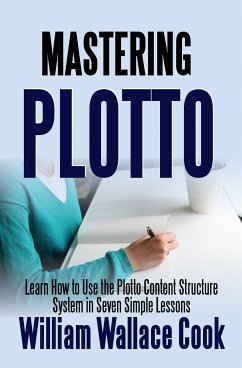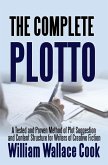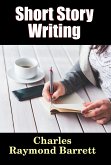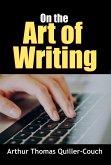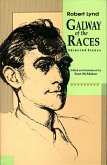The trick is in coming up with enough plots.
A wildly prolific, early 20th century pulp writer, William Wallace Cook was a writing machine.
While he set the bar for pulp fiction, he was also passionate about the process of writing itself. Keeping notes on index cards, he was able to distill the process of plotting down to a simple, but thorough manual, Plotto.
Alfred Hitchcock was an early student, so was Earl Stanley Gardner. Robert Silverberg also gave a great review of the book.
When Cook published Plotto in finished from, he recieved feedback from readers who still could not work out how to use his massive book from the instructions in the front of it.
In 1934, he came out with a seven-part lesson series that simplified the learning curve.
"Plotto is a new method of plot SUGGESTION for writers of CREATIVE fiction. Let us, here at the beginning of our course, place the emphasis on the word SUGGESTION, as well as on that other word, CREATIVE. In later lessons of the course we shall go more deeply into this matter of the interpretation of suggestion.
"For the present, however, it is merely necessary to note that the interpretation of suggestion results in creative work only when the constructive imagination builds with material hewn from the quarry of individual experience. In other words, we achieve Originality; and Originality is the ideal of the Plotto method of plot construction through the interpretation of plot suggestion."
This point many miss is that these plotting generators are best used as methods of inspiration, not as a subsitute for a writer's perspiration. While many author's rave about Plotto, it is perhaps better to use it as a learning tool. Certainly having a copy on hand when the muse has left you, the deadline looms and your private hell of Writer's Block seems camped in your office.
This edition includes the Plotto Chart of Masterplots With Interchangeable Clauses for quick reference. Simply recombing these three A, B, and C Causes (Protagonist, Action/Crisis, Climax/Resolution) can themselves trigger a valuable inspiration that can get your creative juices flowing.
If you have Plotto, and don't use it much - or would like to learn the basics of plotting, this book is a key learning manual for any author.
Get Your Copy Today.
Dieser Download kann aus rechtlichen Gründen nur mit Rechnungsadresse in A, B, BG, CY, CZ, D, DK, EW, E, FIN, F, GR, H, IRL, I, LT, L, LR, M, NL, PL, P, R, S, SLO, SK ausgeliefert werden.
Hinweis: Dieser Artikel kann nur an eine deutsche Lieferadresse ausgeliefert werden.

